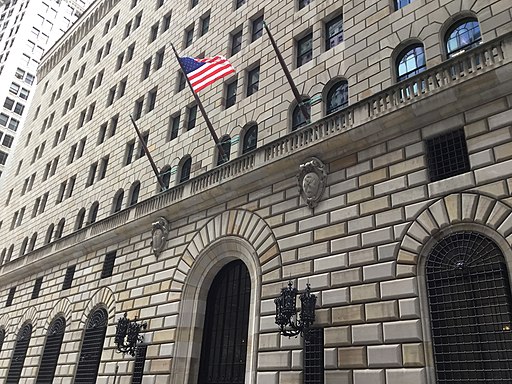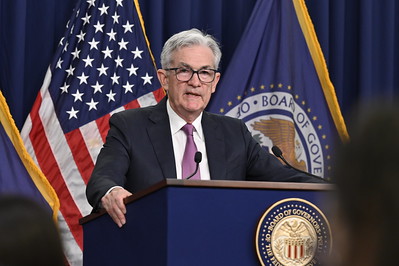Recently, the Federal Reserve made headlines with its decision to maintain interest rates, coupled with signals of potential rate cuts in the coming year. This news isn't just a routine economic update—it's a beacon signaling shifts in the market, with important implications for anyone thinking of buying or selling a business.
In this piece, we delve into the heart of recent research and expert analysis from sources like PBS, Reuters, and the Financial Times to translate what the Federal Reserve's actions and the broader economic trends mean for you.
Whether you're contemplating selling your business to embark on a new adventure or considering buying one to expand your empire, understanding these changes is crucial.
Why ? The Federal Reserve's decisions directly influence the cost of borrowing, the confidence of investors, and the overall economic climate—all of which play a starring role in the valuation and attractiveness of businesses on the market. For sellers, this could mean the difference between a good deal and a great one. For buyers, it's about timing the market to get the most value for your investment.
In plain language, these actions signal stability in near term interest rates, some hope that borrowing costs may fall in 2024 and opportunity for near term business growth. All of these factors make the market more favorable for selling or buying a business.
So, let's dive into the details, unravel the implications, and equip you with the knowledge you need to make informed decisions in this evolving economic narrative.

The Federal Reserve's recent decision to keep interest rates unchanged, with potential cuts in 2024, marks a significant moment for the economy and businesses. Jerome Powell, the Chair of the Federal Reserve, indicated a shift in monetary policy, signaling that the era of rapid rate hikes might be over, and future reductions are on the horizon. This decision was driven by steadily cooling inflation and a desire to avoid overstaying a restrictive policy that could harm the economy. Powell acknowledged that inflation remains above the desired 2% target but noted substantial progress, with specific declines in goods, housing, and services inflation.
For businesses looking to buy or sell, this news is crucial. The anticipation of lower interest rates could mean lower borrowing costs, potentially increasing market liquidity and making acquisitions more financially attractive. Sellers might find a more buoyant market as buyers gain access to cheaper capital.
This article examines the unexpected turn of events where the dire predictions of 2023, involving recession and slow growth due to rapid interest rate increases, did not materialize. Instead, the Federal Reserve noted faster-than-expected progress on inflation control without a significant rise in unemployment. Several factors contributed to this positive outcome, including unexpected economic resilience, a rise in productivity, and a stronger labor force than anticipated.
 For those considering buying a business, this context suggests a more stable and growing economic environment than previously thought, potentially offering a solid foundation for new investments and expansions. Sellers might benefit from the increased confidence and economic stability, which could enhance the valuation of businesses.
For those considering buying a business, this context suggests a more stable and growing economic environment than previously thought, potentially offering a solid foundation for new investments and expansions. Sellers might benefit from the increased confidence and economic stability, which could enhance the valuation of businesses.
The Financial Times discusses the market's positive reaction to the Federal Reserve's indication of interest rate cuts in 2024. This announcement led to a rally in stocks and a decrease in Treasury yields, reflecting investor optimism about future borrowing costs. The article emphasizes the Fed's balancing act of reducing inflation while avoiding excessive economic restriction.
Affect on Acquisitions
For business owners contemplating selling their businesses, the current economic climate shaped by the Federal Reserve's policies presents several advantageous factors. First, the anticipated reduction in interest rates in 2024 could lead to a more vibrant and active market. Lower borrowing costs mean potential buyers have better access to affordable financing, expanding the pool of qualified and interested purchasers. This increased demand can lead to competitive bidding scenarios, potentially driving up the selling price and providing better terms for sellers.
Additionally, the Federal Reserve's careful management of inflation and interest rates contributes to overall economic stability. A stable economy reassures buyers about the future, making them more willing to invest in new ventures. For sellers, this translates into a more favorable environment to showcase the value of their business, as buyers are more confident in the long-term viability of their investments.

Moreover, the positive market reaction to the Federal Reserve's announcements reflects a broader sense of optimism. This sentiment can have a tangible impact on
business valuations, as optimistic buyers might be willing to pay a premium for businesses that show promise in a growing economy. Sellers can capitalize on this optimism by positioning their businesses as attractive opportunities that are well-suited to thrive in the evolving economic landscape.
In conclusion, the Federal Reserve's recent signals of potentially lower interest rates and continued economic stewardshipcreate a promising scenario for business owners looking to sell. The combination of a more robust buyer market, economic stability, and a general sense of market optimism sets the stage for potentially lucrative and successful business transactions.
IBEX's Conclusion
All of this is good news for business owners who are ready to exit their businesses or bring in strategic partners to drive growth. However, privately held businesses are not traded like commodities. They represent lifelong commitments to customers, employees and reputations. The decision to sell is complex and personal. We have learned over the years that the number one driver for selling a business is the owner’s desire to pursue the next chapter of his or her life. When that time comes these outside factors make it harder or easier to achieve the financial results, but they are not the deciding factor.
